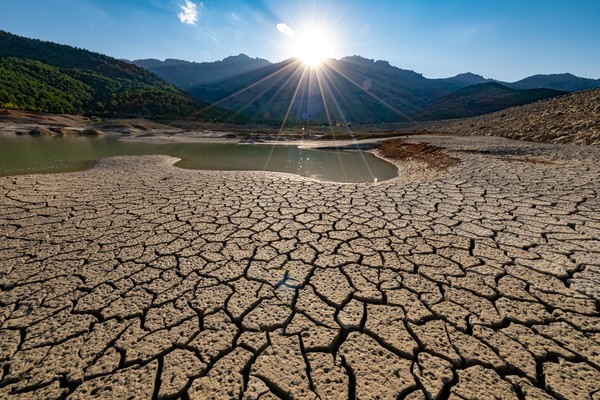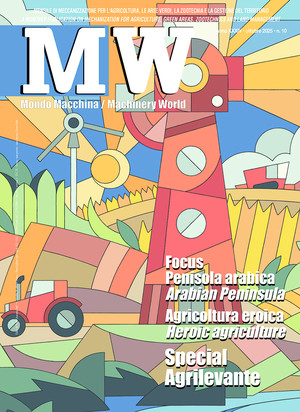
Global Warming: the compromise of COP 28
Countries from all over the world met in Dubai to fight climate change. It is essential to triple the production of energy from renewable sources and phase out all fossil fuels "in a just, orderly and equitable manner"
Under the auspices of the United Nations, the 28th Conference of the Parties (COP 28) on global measures to tackle climate change concluded in Dubai on 13 December. After two weeks of intense negotiations, involving 198 delegations (including that of the European Union), the final agreement did not fully meet the expectations of most of the over 85.000 participants and countless external observers. As has already happened in the past, there has been too much vagueness about strategies and timing to adopt, which contrasts with the severity of the losses and damages associated with the negative effects of global warming.
Two opposing views. The backbone of the Dubai climate negotiations was the Global Stocktake (GST), a mechanism introduced at COP 21 in Paris (art. 14 of the Final Agreement), as an instrument for monitoring greenhouse gas emissions. The GST, in fact, provides that every 5 years the nations party to the agreement make a review of the commitments made to reduce emissions for which they are responsible, identifying ways (strategic and financial) to make climate action more effective and rapid. In this respect, the question of the future of the ‘fossil’ dominated the scene leading to the most heated debate between two opposing sides.
One formed by the High Coalition Ambition, an intergovernmental negotiating group of 115 countries basically led by European ones, which fights for the "phase-out" of fossils (abandonment), as the minimum acceptable result. The other consists of the 13 OPEC countries (Organization of Petroleum Exporting Countries) which has every interest in containing any form of restriction on oil, gas and coal. Incidentally, Dubai is the second consecutive COP that is hosted in countries whose economy is closely connected to fossil fuel markets (last year it was in Egypt in Sharm El Sheikh) and the next one will be held in Baku, Azerbaijan which, as we know, is one of the big oil and gas producers.
A compromise solution. The presidency has found a compromise on the phrase “transitioning away”, which literally means “moving away” from the fossil. A linguistic expedient that gives rise to various interpretations and which, precisely for this reason, has more or less brought everyone to agree, from the monarchies of the Persian Gulf to the small island states - such as Samoa - most exposed to the risks of environmental catastrophes. To take the positive side of the signed agreement, it can be said that this marks the “beginning of the end” of the era of fossil fuels by laying the foundations for “a rapid, just and equitable transition, supported by deep emissions cuts and large-scale financing” to keep global temperature rise within the 1.5°C limit compared to pre-industrial levels (1850). To date, it is evident that 2023 has been the hottest year on record, with an average temperature increase of 1.1 °C (1.6 in the emerged lands, 0.9 in the seas) while the forecasts predict values that by mid-century will be between 2.1 and 2.8 °C (VI IPCC Assessment Report). We are therefore out of the desired trajectory, but certainly the efforts made have significantly lowered the trend that would have led to values close to 4°C. That is why we must insist on ambitious targets supported by serious sustainable development policies.
Emissions, the "cuts" planned for the coming years. Article 28 of the Mitigation section of the agreement recognises that limiting global warming requires drastic, rapid and lasting reductions in global greenhouse gas emissions. These should be reduced by 43% by 2030 and by 60% by 2035 compared to the 2019 level, to reach net zero by 2050. This means promoting the development of renewable energy sources (RES) and eliminating the use of fossil fuels. In particular, it aims to triple RES and double energy efficiency globally by 2030, veering strongly towards net zero emissions energy systems well before or around the middle of the century. The Dubai agreement also stipulates that coal power should be phased out rapidly and that all fossil fuels should be phased out in a “just, orderly and equitable manner”, starting with the cancellation of the large subsidies allocated to them. RES, clean nuclear and abatement and removal technologies such as carbon capture, use and storage are the main tools identified by COP 28 to accelerate the reduction of greenhouse gas emissions (CO2, methane, etc.). The development and upgrading of infrastructure and the rapid deployment of low- or zero-emission vehicles will help to cut the share of emissions from road transport.
The principle of climate justice. Obviously, to face what is shaping up to be a complex and radical transformation of production systems and human activities on a global scale requires huge economic resources that not everyone has. In this light, the text of the Dubai agreement explicitly refers to the principle of "climate justice", recognizing that "the adaptation finance needs of developing countries are estimated at USD 215–387 billion annually up until 2030". The investments needed to reach the target of net zero emissions by 2050 are quantified at about $4,300 billion per year (until 2030) for clean energy projects, increasing to $5 trillion per year for the next twenty. In his closing speech at COP28, Simon Stiell, UN Executive Secretary for Climate Change, said that from now on, to turn the page on the fossil fuel era, all governments and businesses must turn commitments into concrete results without delay. The central role of the media in actively involving civil society in a process of major cultural change must not be overlooked in this global challenge.








